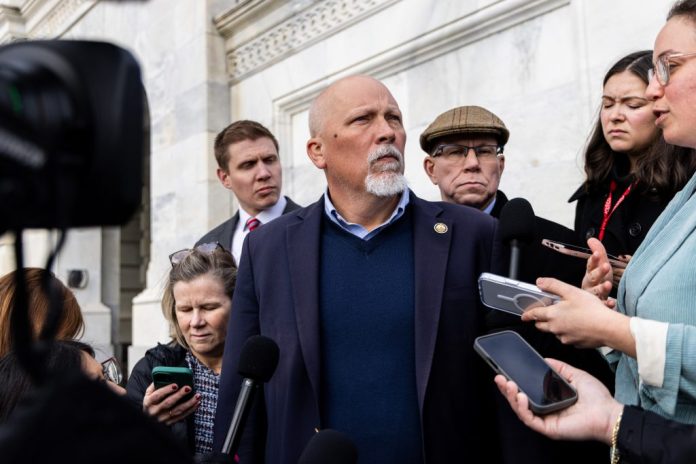True Crime: ‘Dr. Death’ Comes To Texas
In the span of just two years, neurosurgeon Christopher Duntsch managed to maim 33 out of the 38 patients he operated on and kill two more before his medical license was revoked. And throughout it all, surgeons and nurses blew the whistle on his wildly disturbing behavior, yet he was allowed to continue to practice. The television series “Dr. Death” on Peacock is based on his story.
Duntsch was born in Montana on April 3, 1971, but moved to Memphis, Tennessee, as a young child. He was a football star in high school, and attended Millsaps College before transferring to Colorado State University to play football. He later transferred to the University of Memphis. Football didn’t pan out, however, as former teammates said he lacked talent, so Duntsch decided to pursue medicine.
Duntsch completed his MD-PhD program and neurosurgery residency program at the University of Tennessee Health Science Center, somehow managing to get through the program while participating in fewer than 100 surgeries, when residents typically participate in more than 1,000. In his fourth year of residency, he was suspected of being on drugs and was sent to a rehab program. Several months later, he was allowed to return.
Duntsch moved to Dallas in 2010 and secured a position as a minimally invasive spine surgeon at what is now known as Baylor Scott & White Medical Center – Plano. His salary was $600,000 a year with bonuses.
But problems with Duntsch appeared almost immediately. Vascular surgeon Randall Kirby told various news programs that Duntsch was not a skilled surgeon and “could not wield a scalpel.” Further, Duntsch severely maimed multiple patients while working at Baylor – and continued operating even when colleagues raised red flags.
His very first patient, Kenneth Fennell, had chronic pain after Duntsch operated on the wrong part of his back. Duntsch performed a second procedure on Fennell to fix the pain left by the first surgery, and was left with limited use of his legs.
A second patient, Lee Passmore, nearly died after Duntsch badly messed up his surgery. Duntsch cut a ligament during the surgery and put a screw in the wrong place. He then stripped the threads on the screw so that it could not be removed, but since it was in the wrong place anyway, removing it could have caused Passmore to bleed out and die. The surgeon who assisted on the procedure, Mark Hoyle, reported that Duntsch didn’t seem to notice Passmore’s excessive bleeding, and Hoyle wondered if Duntsch was sane enough to operate on patients.
Duntsch also maimed Jerry Summers, his longtime friend. Duntsch was supposed to fuse two of Summers’ vertebrae, but botched the procedure and left Summers a quadriplegic. Summers later falsely accused Duntsch of doing cocaine with him the night before the surgery. Summers died in 2021 due to complications from Duntsch’s surgery.
Barry Morguloff was also one of Duntsch’s victims, who was left with bone fragments in his spinal canal and has barely any function in his left side. Kirby, Duntsch’s colleague, also assisted on this surgery and later reported that Duntsch kept making mistakes during the surgery even after the correct anatomy was pointed out to him.
Yet another victim was Kellie Martin, who died due to Duntsch’s incompetence. During her surgery, Duntsch cut through Martin’s spinal cord and severed an artery, then continued to operate even though Martin was rapidly losing blood. When a trauma surgeon and anesthesiologist tried to warn him about the blood loss, Duntsch refused to stop the operation or even acknowledge a problem. After the surgery, Duntsch ignored Martin and she went into hemorrhagic cardiac arrest, eventually bleeding to death.
Duntsch’s surgical privileges were revoked, but Baylor Plano allowed him to resign to avoid having to fight him in a wrongful termination suit. Allowing him to resign also meant Baylor Plano didn’t have to report him to the National Practitioner Data Bank (NPDB), which would have flagged his issues.
Duntsch was able to get a job at Dallas Medical Center, but was granted only temporary privileges while administrators waited to get records from Baylor Plano. Nurses raised concerns that Duntsch was on drugs, but it wasn’t until he killed a patient after less than a week on the job that his privileges were pulled.
In that short time, Duntsch severed Floella Brown’s vertebral artery and put too much of a substance in the wound that was meant to stop the bleeding. Brown suffered a stroke, but Duntsch refused to check in on her or transfer her out of his care. Brown remained in a coma for hours before Duntsch finally let another doctor care for her, but by then she was already brain dead.
Duntsch also managed to maim Mary Efurd during his brief tenure at Dallas Medical. He severed a nerve root during a surgery in which he was operating on the wrong section of her back. His colleagues continually warned him that he was messing up the surgery, but he continued.
Robert Henderson performed the surgery to repair what Duntsch had done to Efurd. He was so horrified by what he found in Efurd that he contacted the University of Tennessee to see if Duntsch had actually received a degree from the institution. When the university said Duntsch had received a degree, Henderson contacted his fellowship supervisor in Memphis and his residency supervisor. He then learned about Duntsch being sent to the physician’s rehab program.
Even though Duntsch’s surgeries at Dallas Medical were badly botched, he wasn’t reported to the NPDB because there was no requirement they do so for doctors with temporary privileges.
Duntsch continued to bounce around hospitals in the Dallas area, including Methodist Hospital, where Duntsch maimed Jeff Glidewell to the point that Kirby, his former colleague, thought that it looked like Duntsch tried to decapitate Glidewell. Duntsch had severed one of Glidewell’s vocal cords after mistaking neck muscle for a tumor. Duntsch then stuffed a surgical sponge into Glidewell’s throat to stop the bleeding, but he closed up the surgery without removing the sponge, which led to an infection that made Glidewell septic. Duntsch refused to help remove the sponge, and Kirby was brought in to fix Duntsch’s work. Kirby later explained that Duntsch’s work looked like that of a “crazed maniac” and told Glidewell it looked like Duntsch tried to kill him Glidewell reportedly had another 50 procedures performed to fix the damage from Duntsch’s surgery.
Glidewell is reportedly the last patient Duntsch operated on.
Kirby wrote a complaint to the Texas Medical Board and, along with lobbying from him and Henderson, the Board suspended Duntsch’s license in June 2013. An investigation began, and Efurd, Fennell, and Passmore filed separate lawsuits against Duntsch for their botched surgeries.
In 2015, Duntsch was charged with six felony counts of aggravated assault with a deadly weapon, five counts of aggravated assault causing serious bodily injury, and one count of injury to an elderly person – the last charge relating to the injuries Duntsch caused to Efurd.
Duntsch went on trial in 2017 and was convicted in under four hours. He was sentenced to life in prison and is not eligible for parole until 2045. Civil lawsuits are still pending.
" Conservative News Daily does not always share or support the views and opinions expressed here; they are just those of the writer."




